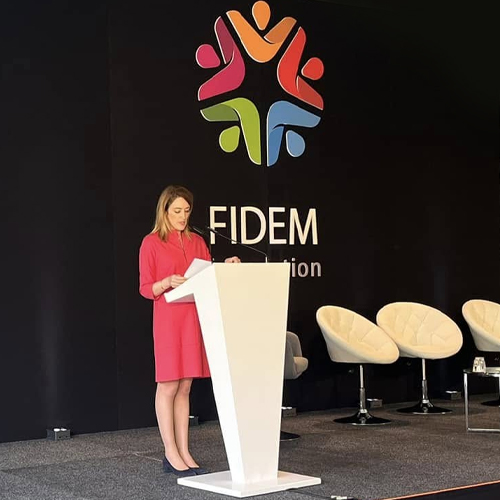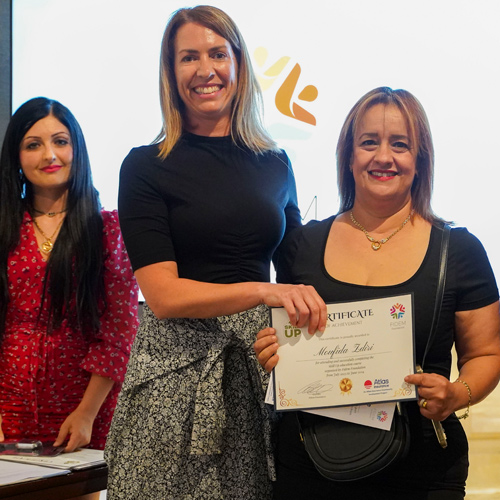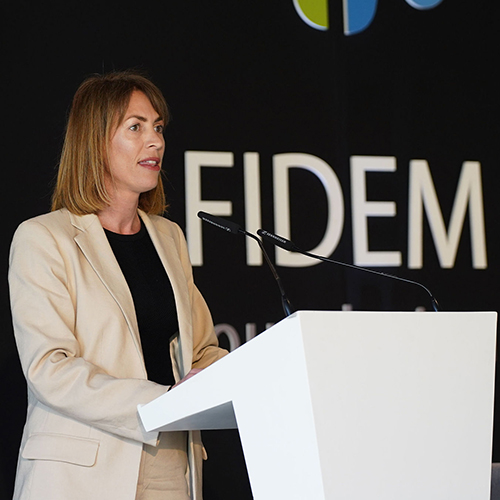'We expect women to work as though they don’t have children and to raise children as though they don’t work'
Malta will only be able to address its low fertility rate once it swaps the cultural norm of "killing oneself with work" with one that focuses on people's wellbeing, Marie Brigulgio told a conference on Friday.
The economist was discussing Malta’s low fertility rate - the lowest in Europe at 1.13 live births per woman. According to Eurostat, this is significantly lower than the EU average of 1.53 births per woman.
A study commissioned by the National Commission for the Promotion of Equality shows that more than three out of every four women who have one child do not want any more children.
The research revealed that well over half of 18 to 39-year-old men and women Malta are struggling to fulfil their family responsibilities.
Briguglio was addressing a Women’s Day Conference organised by FIDEM Foundation, which provides support and empowerment to women and girls. During the conference, held at Xara Lodge.
Briguglio said Malta did very well in terms of GDP, but when it came to how we actually feeling, the island did not fare well: “Our work-life balance is gone".
"What worries me about this whole fertility issue is that in Malta it is difficult to live a balanced life. We seem hell-bent on pursuing our material health at the expense of our wellbeing.
"We need to change the norm from one where you have to work over 40 hours to succeed, to one where you can be materially well off without having to kill yourself with hours of work. We cannot be such a developed country, doing so well on so many indicators, and killing ourselves working," she said.
Briguglio referred to the Budget 2024 measure that gave ?1,000 to people who had a second child, questioning whether people who are motivated to have a child for ?1,000 should actually be having more children. She urged policymakers to reach out to academics ahead of launching such measures.
Addressing the same conference, Vassallo Group chair Natalie Briffa Farrugia, suggested exploring the introduction of reduced tax rates for working mothers. Apart from encouraging women to work, this could help address the low birth rate, she said.
Professor Anna Borg, who chairs the Malta Woman’s Lobby, also referred to "poor support structures" for working mothers.
School hours, she said, were too short while summer holidays were too long. Women carried most of the caring load at home and were expected to return to work 18 weeks after giving birth.
“We are in this situation because we still expect women to work as though they don’t have children and expect them to raise children as though they don’t work,” she said.
More women needed in politics
European Parliament President Roberta Metsola meanwhile urged political parties to find female candidates.
“I’m all for mechanisms that increase women’s representation... What I don’t want are mechanisms that cause regress: if fewer people voted for women in the 2022 general election [because they relied on the mechanism], then we have a problem.
"If male candidates say: ‘don’t vote for her as she will be elected anyway’, then we have a problem,” she said.
Despite aspirations for gender equality and greater female representation in parliament, only four women won seats in the 2022 general election based on first-count votes. Of the 139 candidates, 33 were women – 17 from PN and 16 from PL.
“I hope that, in the next general election, more people will vote for women than they did in 2022: if they don’t, we are not achieving gender equality,” she said.
Metsola also noted that the Maltese part-time parliament system made it impossible for MPs to juggle politics and their family.
She also referred to women who paved the way for fellow Maltese citizens.
“I think of the brave and brilliant Daphne Caruana Galizia, in her fight against corruption with only a laptop in hand.
"I think of the resilient and inspiring Isabelle Bonnici, who in her quest for justice, is pioneering the country’s efforts to set safer standards in workplaces for the benefit of everyone,” she said.
This article was published in the Times of Malta on the 8th March 2024 - click here










